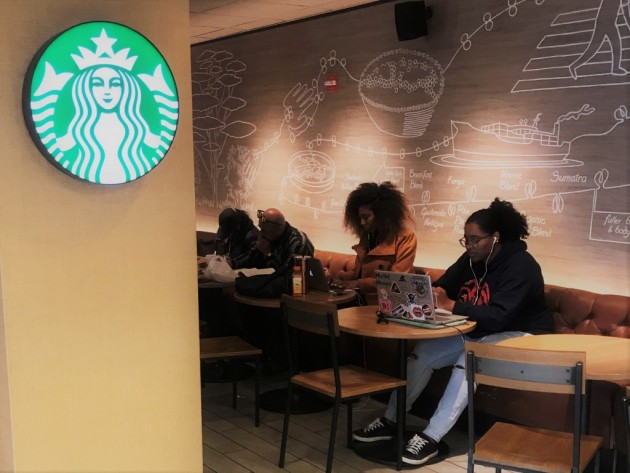During the 1960s, when freshly-baked apple pies, whitehomemakers and corny jingles dominated the American advertisingscene, Thomas Burrell refused to follow the”leaders.”
He worked hard as a young, African-Americancopywriter for such agencies as: Wade Advertising, Leo Burnett andFoote Cone & Belding’s London office and Needham Harper& Steers. As he moved his way up, he kept in mind the secret toadvertising that most white agencies overlook.
“I knew socio-cultural anthropology:much of our culture is driven by black culture,” Burrell saidin a phone interview on Sept. 28. With this in mind, Burrellfounded Burrell Communications Group in 1971.
Because of his accomplishments, he receivedthe McDonald’s 365Black Award Sept. 17 for his pioneeringefforts in understanding African-American and urban consumerbehavior.
Burrell accepted the honor at theMcDonald’s awards ceremony in New York City along with Rev.Jesse L. Jackson, Sr. and Reggie Webb, McDonald’s owner andoperator. The award honors African-Americans for the contributionsand accomplishments each day of the year.
“It’s always an honor to recognizeand show appreciation to those who have been so instrumental inshaping American history around the world and within theMcDonald’s family,” said Mike Roberts, CEO ofMcDonald’s USA. “McDonald’s is committed tocommunicating the pride, achievement and heritage of theAfrican-American communities we have been so privileged to servefor many years.”
Through his company, Burrell is best known forseeking to advertise to consumers who were ignored by larger,mainstream agencies—mainly African Americans and urban youth. Byfocusing on reaching these demographics, the company believes thatthey have learned the advertising secret of reaching anyone.
“We make brands part of the culture, anyculture, even your culture,” the Burrell website boasts.
The first television commercial Burrellproduced was for McDonald’s and it featured African-Americanactors—one of whom was Todd Bridges, co-star of “DifferentStrokes.” A father who worked nights spent Saturday nightsplaying with his son, who was played by Bridges, and eatingMcDonald’s.
Burrell said crossing over successfully to thetelevision market and with African-American actors was a hugeaccomplishment—even during the early 1970s.
“If you put a commercial on the air thathad black people, it would turn the audience off,” Burrellsaid.
The communications group has even reserved therights to the term “yurban,” referring to young plusurban. Catering to the “yurban,” African-American andgeneral market, the advertising specialists of BurrellCommunications Group say they believe there is no one they cannotreach.
The company is responsible for more than justthe commercials you may see that just happen to have one or twoAfrican-American actors, Burrell has created an ad campaignrevolution for Verizon wireless, Adidas, Sears, Coca-Cola, and eventruth.com.
“Burrell is the agency it is todaybecause of McDonald’s and other companies that had theforesight to see the value of target marketing long before itbecame trendy,” Burrell said at the event.”McDonald’s took the lead, and other progressivecompanies followed.”
Burrell said he is proud of hisaccomplishments and he is grateful to the black consciousnessmovement that nurtured his advertising revolution.
“It’s alright to be black,”he said. “It’s alright to be different.”


